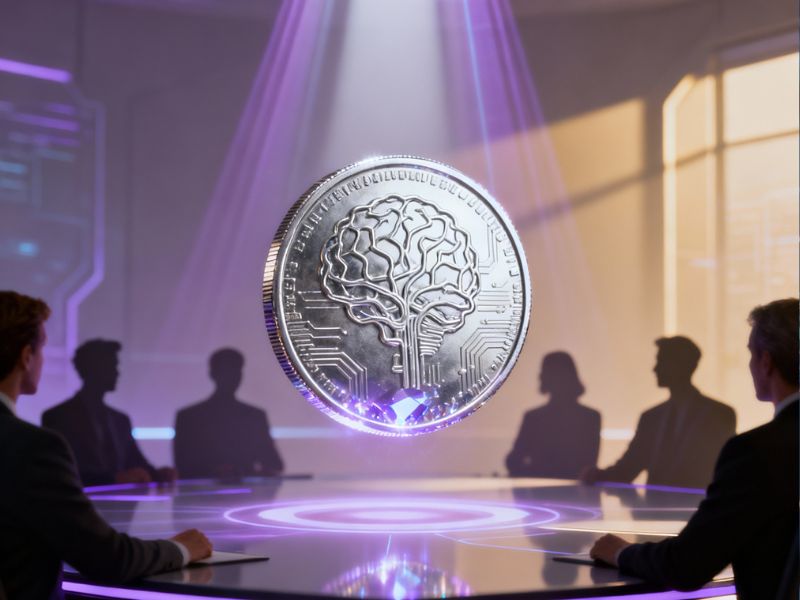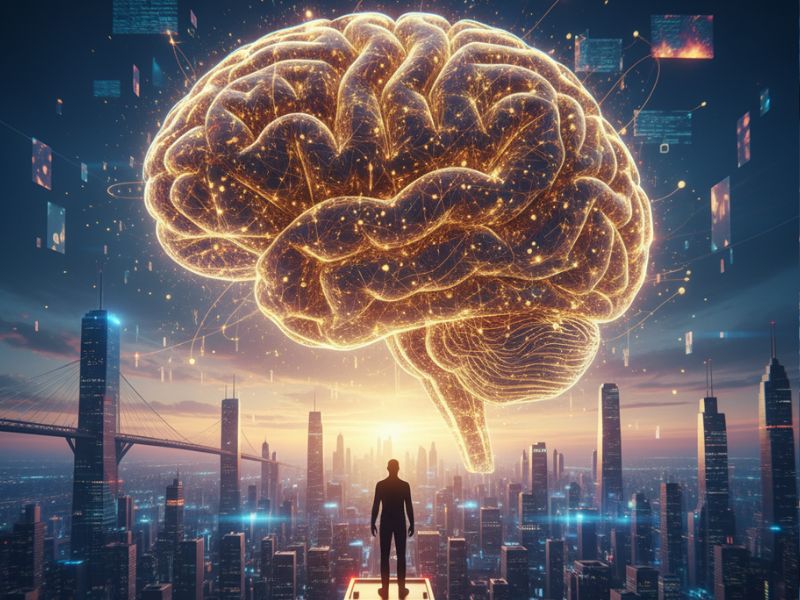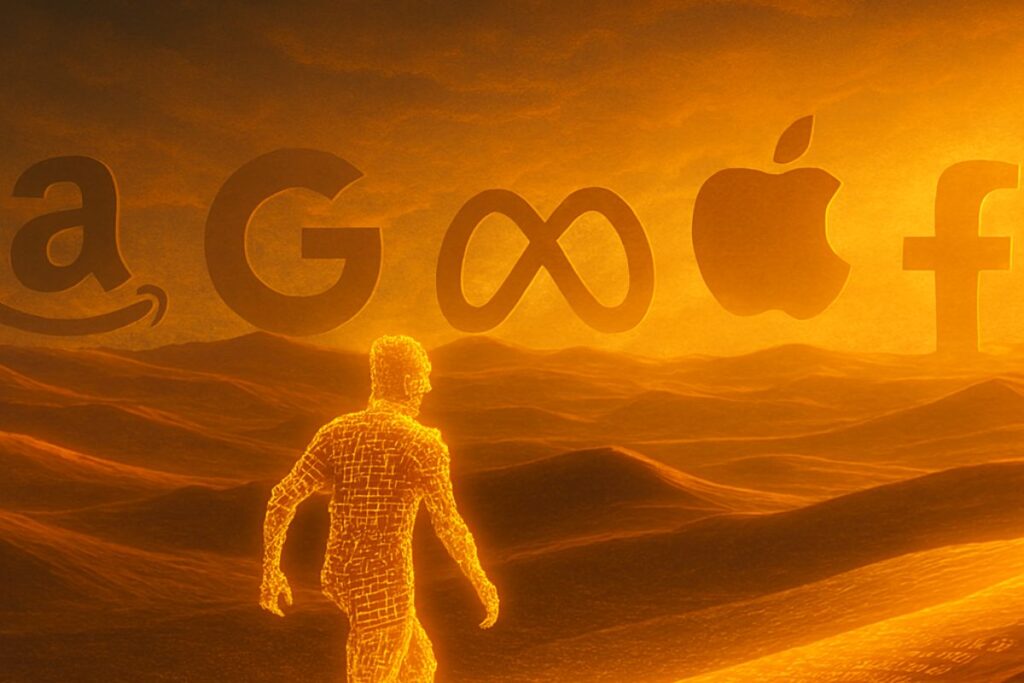In the rapidly evolving tech landscape, AI hiring trends 2025 reveal a startling reality: the competition for top-tier AI talent has escalated to the point where companies are paying billions for a single hire. Meta’s recent acquisition of Andrew Tulloch, co-founder of Thinking Machines Lab, with a compensation package reported to be as high as $1.5 billion over six years, perfectly illustrates this new era of hyper-competitive AI hiring.
Why It Matters
This historic pay package not only reshapes the AI hiring landscape but also signals the growing value and scarcity of elite AI talent that drives the future of technology innovation.
Meta’s $1.5 billion AI hiring move highlights the fierce competition in AI hiring trends 2025, underlining the critical scarcity of top AI talent. As companies scramble to secure the best minds, this trend is reshaping industries and accelerating innovation at an unprecedented pace. The stakes are high, making top paid AI jobs not just lucrative but essential for driving the next wave of technological breakthroughs.
Main News/Update

Meta’s $1.5 billion offer to Andrew Tulloch, a leading AI researcher and co-founder of an innovative AI startup, marks one of the largest single compensation deals in tech history. This move underscores Meta CEO Mark Zuckerberg’s aggressive strategy to leapfrog rivals by securing the sharpest minds in AI, fueling Meta’s ambition to lead the next wave of AI-powered products and services—from AI-driven social media features to transformative virtual reality experiences.
Key Facts & Official Statements
- Andrew Tulloch’s package reportedly includes stock incentives, bonuses, and salary elements, potentially summing to $1.5 billion over six years.
- Meta has been aggressively recruiting top AI talent from other giants like OpenAI, Google, and Anthropic, hiring eleven senior AI engineers within weeks recently.
- A spokesperson for Thinking Machines Lab confirmed Tulloch’s departure was for personal reasons while highlighting his influence on AI innovation.
- Meta emphasizes this hire is part of a long-term strategy to build advanced AI infrastructure powering everything from personalized content to AI avatars in the metaverse.
Background & Context
This massive hiring figure is set in context of AI hiring trends 2025, where demand for experienced AI engineers, researchers, and system architects has surged dramatically. According to reports, AI-related job listings grew by over 56% in 2025, following explosive increases since 2023. As AI becomes central across industries, companies are not just buying products but competing fiercely for the human brains behind innovation.
The scarcity of experts who can design cutting-edge AI models and scale them to production-ready systems is pushing salaries and stock incentives to unprecedented heights. These engineers represent the rare skills set enabling companies to develop scalable generative AI and next-gen AI applications.
Stay informed with our latest updates. For more stories, insights, and breaking developments, explore our full News section, your gateway to timely coverage and trusted reporting.
Real-World Examples and Reactions
- Humorous Take: Tech circles joked that “Meta literally bought a brain on installment payments,” poking fun at the mind-boggling valuation tied to one AI engineer’s hire.
- Industry Rivalry: Google’s DeepMind and OpenAI, known for their AI breakthroughs, have also hiked pay packages for AI experts, some reportedly touching $800,000+ yearly salaries for top roles.
- Startups and Talent Drain: Smaller AI startups express concern that such giant pay packages by tech behemoths drain innovation by pulling key talents away with billion-dollar offers, creating a high barrier for new entrants.
Expert Opinions & Data

- AI labor market analyst Dr. Sofia Hernandez notes, “We are witnessing a historic premium on AI skills, with billion-dollar deals like Meta’s reflecting both talent scarcity and the high stakes of AI dominance”.
- An HR technology report by HireVue shows that 72% of HR professionals now use AI every week in hiring. This shift in AI hiring trends 2025 is changing how companies find and recruit talent, making AI skills a basic requirement for long-term career success. AI is no longer just a tool—it has become essential in hiring top paid AI jobs and shaping the future workforce.
- According to industry data, the highest paid AI roles in 2025 include AI Product Managers, Deep Learning Engineers, and AI Research Scientists, with packages often exceeding $300,000 annually, with equity contributing significantly to total pay.
Common Misunderstandings about AI Hiring
Despite its growing role, AI hiring trends 2025 are still surrounded by common misunderstandings. Many believe AI will replace human recruiters or create bias, but in reality, AI supports recruiters by making hiring faster and fairer. Another misconception is that AI hiring is only for big companies or data scientists, when in fact, AI skills are needed across many roles and organizations. Clearing up these myths helps companies embrace AI hiring trends 2025 more effectively.
- “AI engineers are robots”: Reality, these are highly skilled humans with unique expertise, not automatons.
- “High salaries mean guaranteed success”: Even billion-dollar hires require the right resources and culture to succeed.
- “AI talent is abundant”: Contrary to assumption, top AI talent is highly scarce and specialized.
- “Startups can’t compete”: Some startups retain edge through innovation culture and agility despite budget limits.
- “AI jobs are purely technical”: Many roles require creativity, ethics, and communication beyond coding.
Impact & Future Outlook

Meta’s unprecedented $1.5 billion package exemplifies a changing paradigm where AI talent, not just capital, determines competitive advantage in AI hiring trends 2025. As AI integration deepens across industries, this shift is driving companies to pay premium packages for elite engineers, signaling a major transformation in top paid AI jobs.
This trend not only reshapes how innovation hubs attract the best talent but also raises important questions about sustainability and inclusivity in AI development within the evolving landscape of AI hiring trends 2025.
FAQs
Q: Who is Andrew Tulloch and why is he important?
A: He is the co-founder of Thinking Machines Lab, an AI startup, whose expertise in advanced AI architectures attracted Meta’s multimillion-dollar offer.
Q: How common are billion-dollar AI hiring packages?
A: They are rare but growing as competition for top AI talent intensifies among major tech companies.
Q: What jobs are the top paid in AI in 2025?
A: AI Product Managers, AI Research Scientists, and Deep Learning Engineers lead in salary among AI jobs globally.
Q: How is AI changing hiring trends overall?
A: AI tools are widely adopted in recruitment, boosting productivity and reshaping skill demands across many industries.
Q: What does such high pay mean for AI startups?
A: Startups face talent drain but may still innovate through culture and niche expertise despite budget challenges.
Q: Are AI roles only technical?
A: No, many require creativity, ethical foresight, and strong communication skills to guide AI deployment.
Q: What’s the future of AI hiring trends?
A: Increasing demand and salaries are expected, with AI fluency becoming a universal skill in the workforce.
Conclusion
Meta’s $1.5 billion AI hire is more than a headline, it’s a signpost of the future where human brilliance fuels the AI revolution. As companies battle for talent, one wonders: Will this billion-dollar strategy unlock new realms of innovation or widen gaps in access to AI breakthroughs? What’s your take on the value of AI talent today? Share your thoughts below.
Meta’s staggering $1.5 billion AI hire epitomizes the fierce competition and high stakes in AI hiring trends 2025. As companies invest unprecedented sums to secure elite AI talent, the landscape for top paid AI jobs is rapidly transforming, setting new salary benchmarks and caliber expectations. This monumental deal highlights how critical top paid AI jobs have become to driving innovation and shaping the future of technology in 2025 and beyond. The question remains: how will this intense race for AI talent redefine industries and influence who leads the next wave of breakthroughs?



